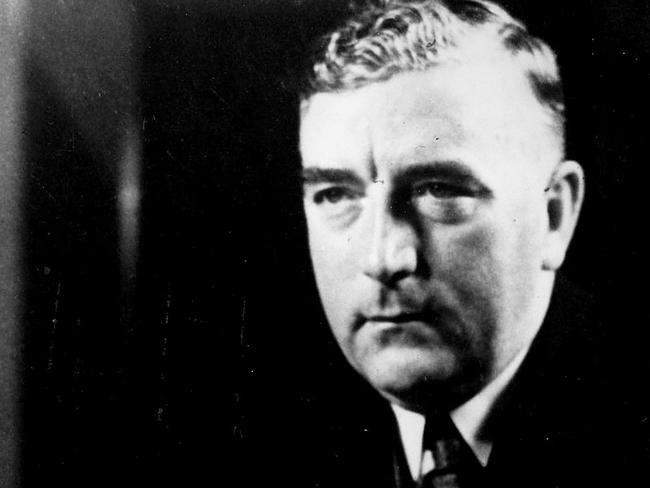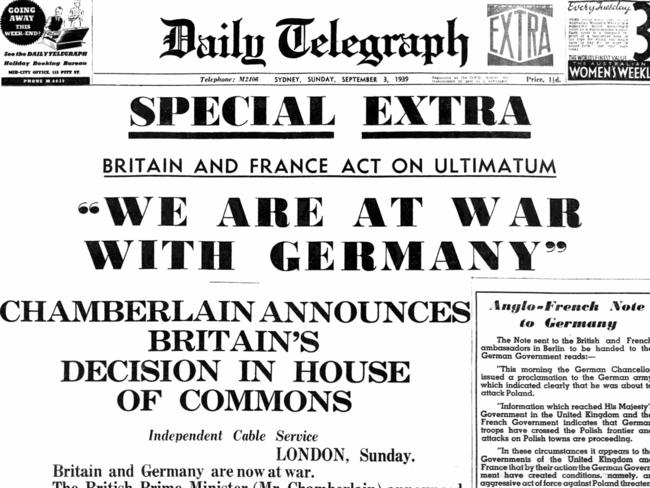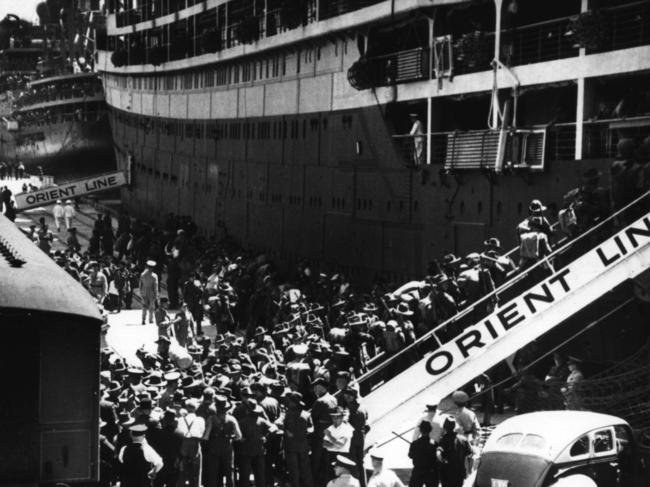PM Robert Menzies declared war but hoped for peace on September 3, 1939
When the new prime minister of Australia Robert Menzies walked into a radio studio on September 3, 1939 he had the weight of the nation on his shoulders, declaring war on Germany
Today in History
Don't miss out on the headlines from Today in History. Followed categories will be added to My News.
The British Admiralty’s telegram was received in Canberra after 9pm, it read “Total Germany, repeat, total Germany.” Its meaning was clear, total war had been declared by Britain against Germany. Although there was no legal requirement for Australia to follow suit and declare war, it was inconceivable Australia could remain neutral in a conflict that involved a nation with such close ties to our own, including one that was home to our king. As prime minister of Australia with only four month’s experience, Robert Menzies could not have expected to deal with any larger issue than taking his country to war.
When he entered the radio studio that night in Melbourne on September 3, 1939, 80 years ago today, he had the weight of the nation on his shoulders. He sat down at the microphone and at 9.15pm made a statement sent out on all radio networks.
“Fellow Australians, it is my melancholy duty to inform you officially that, in consequence of the persistence of Germany in her invasion of Poland, Great Britain has declared war upon her, and that, as a result, Australia is also at war.”
It was a night that changed the lives of most Australians. Most agreed with the decision, but even in the weeks after his declaration of war, Menzies hoped for, and continued to work towards, peace.

War had been brewing for years before Menzies took office. Adolf Hitler had become dictator of Germany through a series of political manoeuvres and chicanery through the 1930s. In his book Mein Kampf, part-biography and part-manifesto for ruling Germany which he began writing in prison in the 1920s, he made it clear that Germany would use its military to regain lost territory, expand its “lebensraum” (living space) and to avenge itself for past political wrongs, most stemming from the WWI peace deal.
Britain and other European nations, keen to avoid another major conflict, tried a policy of “appeasement” in the late 1930s, ceding Czechoslovakian territory to the Nazis in the Munich Agreement of 1938 and taking no action while the Germans annexed Czechoslovakia as well as taking control of Austria. While British Prime Minister Neville Chamberlain hoped the policy of not confronting Germany would lead to “peace in our time” in fact it convinced Hitler he had a free hand to do what he wanted.

Just days after Menzies came to office, in April 1939, Germany said it would no longer honour a non-aggression pact with Poland. It was a sign they were planning to invade to take back the “Danzig Corridor”, territory carved from Germany in the Treaty of Versailles following World War I, which gave Poland sea access. As a signatory to the Versailles treaty, Menzies and his cabinet sided with Britain in their determination to oppose any aggression against Poland, but Menzies, also believed peace could be achieved with negotiation.
When Germany signed a non-aggression pact with the Soviet Union on August 23, it seemed yet another sign of Germany’s determination to take back its old territory from Poland, seemingly with Russian help. On August 25 a “mutual assistance” pact was signed between Britain and Poland, offering assistance if the country was attacked by Germany. Menzies gave the undertaking to Britain that if the country was “forced into war it will not go alone”.

On September 1, Germany invaded Poland. Britain issued an ultimatum to Germany to withdraw its troops. The USSR subsequently invaded the east of Poland 16 days later but under its pact with Warsaw, Britain was not legally obliged to attack the Soviets.
On September 1, Menzies met with his cabinet but they could do no more than wait for news. On Saturday September 2, at 3.15am he went on radio to warn Australia that there was a “danger of war”, although few people are likely to have heard it at that hour. News that the Germans had ignored the ultimatum came through on Sunday and that evening Menzies received a telegram from Britain, after which he made his famous broadcast.
But as preparations for war got underway Menzies still hoped the Germans would negotiate for peace. On September 11 he wrote to Australia’s High Commissioner Stanley Bruce: “I feel quite confident that Hitler has no desire for a first class war, and that until the Polish debacle is complete he will not be disposed to assume the offensive against either France or Great Britain.”

